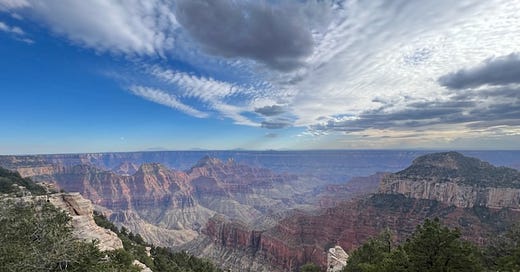I’ve been meaning to write something on the topic of time management – it comes up frequently in my coaching practice – but I haven’t found the time! Next post, I promise. Instead, given the upcoming Thanksgiving holiday in a few days, the topic of gratitude feels very present. So, I will practice what I preach and go with where my energy and interest are leading me today.
What is gratitude? The American Dictionary defines it as “a strong feeling of appreciation to someone or something for what the person or situation has done to help you”, and it is derived from the Latin “gratia” (grace, favor, or kindness). While it is that, I feel like that definition sells the sentiment short. For me, gratitude is a pathway to a sense of centeredness, peace, and contentment. When I am feeling frazzled, frenzied, or in conflict with something or someone, I don’t try to immediately solve the problem, orrganize the disorganization, or confront the conflict. Instead, the first thing I try to do is find a sense of gratitude for something or someone, no matter how small or large, to settle me a bit. It is a powerful, if underutilized, emotion for most people.
There is some brain science behind this. The emotion of gratitude boosts the neurotransmitter serotonin (one of the so-called “Here and Now” molecules, including serotonin, oxytocin, endorphins and endocannabinoids) and can activate the brain stem to produce dopamine (the brain’s pleasure chemical). The H&N’s give us pleasure from emotion and sensation, while dopamine is about the pleasure of anticipation and the future.[1] So when I work to conjure up a feeling of gratitude, I am turning on the tap of H&N’s along with a touch of dopamine, so that I dampen negative emotions, think more clearly and calmly, and move forward with my day.
A case in point: when I was rowing in college, a great way to stay focused in the middle of a race, especially if we were trailing, was to think about something I was grateful for. When you are behind in a crew race, it can be disconcerting because you are facing backward and cannot see the other crew or where the finish line is. For an inexperienced oarsman, it can be panic-inducing, which leads to the desire to turn and see where the other boat is, which reduces your own effectiveness and boat speed. In short, a downward spiral. I found that if I mentally hovered above myself and briefly thought about how grateful I was to be in that moment, in that race, with the privilege of doing that rarified activity, with all the advantages of my youth and health, it would settle my rising sense of panic and allow me to flow with the boat more effectively.
A more recent example: in March 2015, I had a bicycling accident while riding with some friends on vacation in the Santa Ynez Valley. It took me about a year of multiple surgeries, numerous doctors’ visits, hundreds of hours of occupational and physical therapy, and a lot of personal anguish and effort to get back to something akin to “normal”. My right arm will never be the same as it was before. I struggled for a long time with the accident: with not remembering it at all, with the knowledge that my friends experienced the trauma of witnessing my fall, with wishing it hadn’t happened, with feeling I somehow had been negligent in my riding skills, with the imposition of my recovery on my wife and family, etc. But with time and reflection, I am now grateful for the accident. Grateful I don’t remember the specifics. Grateful that my friends were with me and rose to the occasion. Grateful for the skill of my surgeon and others who treated me. Grateful for my wife and children, who were there for me unfailingly. Grateful that the accident made me more empathetic with others who have injuries or disabilities. And grateful that I had the resources and the grit to navigate my recovery (some of the crew training came in very handy during the repetitive, painful, dull act of physical therapy). So many things to appreciate, so many gifts! I just needed time to find them and recognize them for what they were.
When clients relate challenges, disappointments, or setbacks to me, I often ask them where they can find a gift in the situation, or what they are grateful for despite the circumstances. This is sometimes a hard conversation to have – people can be in the grips of negative perspectives about something that has happened at work or in their personal lives – but it usually yields something positive and allows them to reclaim their sense of centeredness, perspective, and control. I try to be guided by my own experiences without imposing my worldview on them.
And right now, at this moment, I am grateful for my clients, who trust me enough to let me into their lives, dreams, and challenges and who show up ready to be intentional with their paths forward. And I am grateful for my subscribers, who read with interest and ask me challenging questions. I hope you all have a wonderful Thanksgiving with family and friends, and that you can enjoy a sense of real gratitude for the good things in your life.
[1] For more on the topic of dopamine’s influence on relationships, work, politics and more, I highly recommend the fascinating book, The Molecule of More: How a Single Chemical in Your Brain Drives Love, Sex, and Creativity – and Will Determine the Fate of the Human Race, by Daniel Z. Lieberman, MD and Michael E. Long. Despite the hyperbolic title, it’s worth a read.



